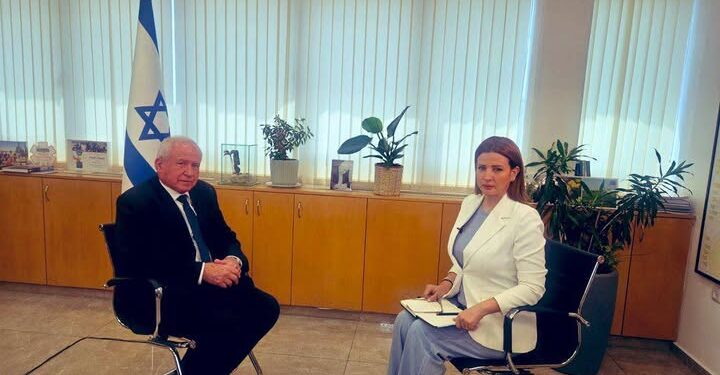In a context marked by the murderous offensive that the Israeli occupation is carrying out against the Palestinian people, especially in the Gaza Strip, where tens of thousands of victims have been identified – mostly civilians, among them 254 journalists who fell into the exercise of their profession – a controversy today shakes up the Tunisian media scene.
Tunisian journalist Rim Bougamra gave a television interview to one of the war officials In the Israeli government, broadcast on the Al Arabiya channel. An initiative which immediately aroused the indignation of the National Union of Tunisian Journalists (SNJT)which published a press release denouncing “a blatant violation of journalistic ethics” and “an act of unacceptable media normalization”.
The union stressed that “no professional necessity or journalistic interest justifies to offer a platform to a government official involved in war crimes and against humanity”. For the SNJT, this type of interview “represents no added value on the informative level”, but rather serves to “whiten the occupation and to deceive public opinion”.
The organization also considered that the dissemination of such an interview “cannot be reduced to a simple editorial choice”, but is “a political decision coated with a media varnish”, aimed at breaking the Arab and popular consensus around the refusal of normalization with Israel.
The press release recalls that Tunisian journalists are morally and professionally required to respect the convictions of the Tunisian people, historically attached to the Palestinian cause and firmly opposed to any form of normalization – whether political, cultural or media. The SNJT thus calls on journalists to actively engage in the denunciation of the crimes of the occupation and in a professional coverage of the fight of the Palestinian people, far from any complacency.
Finally, the union reaffirms its conviction that “real journalism consists in standing on the side of the right causes, the victims and the voice of the oppressed peoples”, rejecting what it describes as “false language of neutrality” which, according to him, to make up a form of media complicity with the occupier.
Following this case, a Large denunciation campaign broke out on social networkswhere many Tunisian and Arab Internet users have castigated the choice of the journalist and called for strict respect for the historical positions of Tunisia vis-à-vis the Palestinian cause.








